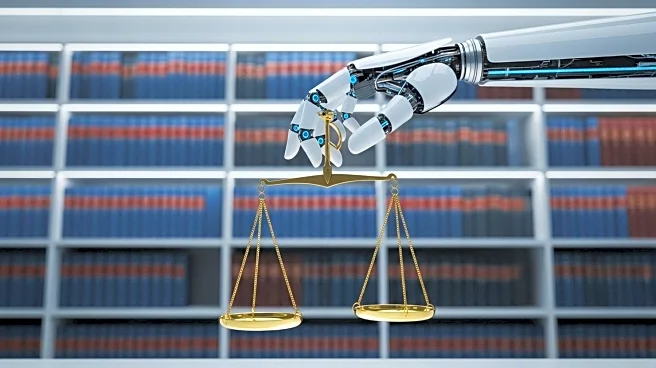What's Happening?
Mississippi College School of Law has announced that it will require AI certification for first-year law students, joining Case Western Reserve University School of Law in this initiative. The program, developed in partnership with Wickard.ai, aims to equip students with foundational knowledge and practical skills in using AI-powered legal tools. It includes instruction on ethical and regulatory aspects of AI, culminating in a certification exam. The initiative reflects a growing recognition of the importance of AI in legal practice, as law schools seek to prepare students for a future where AI is integral to research, drafting, and client service.
Why It's Important?
The mandatory AI certification program represents a significant shift in legal education, acknowledging the transformative impact of AI on the legal profession. By integrating AI training into the curriculum, law schools are proactively addressing the need for future lawyers to be proficient in emerging technologies. This move could enhance the competitiveness of graduates in the job market, as they bring valuable skills to their roles. The focus on ethical and regulatory aspects also highlights the importance of responsible AI use, ensuring that legal professionals can navigate the complexities of AI applications in practice.
What's Next?
As more law schools adopt AI certification programs, there may be increased collaboration between educational institutions and technology companies to develop comprehensive training modules. This could lead to standardized AI competency requirements across the legal industry, influencing hiring practices and professional development. Additionally, ongoing advancements in AI technology may necessitate continuous updates to certification programs to keep pace with new developments. The integration of AI into legal education may also prompt discussions on the broader implications of AI in law, including its impact on access to justice and the role of human judgment.











